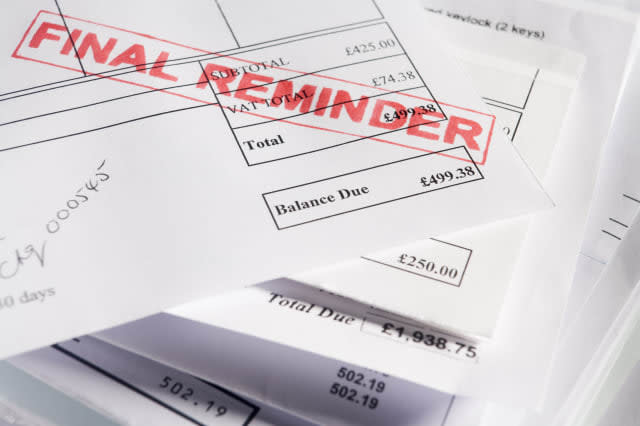Is your Christmas borrowing something to worry about?

Millions of Brits will be relying on borrowing to pay for at least part of their Christmas this year. It's hardly surprising given that according to the Centre for Retail Research, the average household will spend £794 on the festive season, and when it asked people a month ago, 70% hadn't put aside a penny to pay for it.
Borrowing isn't always a bad idea when you need to spread the cost - especially if you are canny about it. But would you be able to spot when sensible borrowing becomes problem debt?
Some people will have planned their festive borrowing wisely, and for them, it isn't necessarily a problem. An interest free credit card can be a useful way to spread the cost, as long as you can afford to pay the debt off before the interest free period runs out - and have the discipline to do so. If you have a strong credit record, and you're not carrying significant debts, then borrowing £794 needn't cost you a penny in interest or a single sleepless night.
Unfortunately there are plenty of people who haven't borrowed this way. There will be those who have dipped into an expensive overdraft, used an existing credit card with an expensive interest rate, or even taken a payday loan.
There are also those people who are carrying debts before they start - so an extra £794 takes them deeply into worrying territory. According to the Money Charity, British household debt has hit £1.5 trillion, and the average UK adult owes about £30,000 - over £1,000 more than the same time last year. Credit card debt alone has risen to £65.7 billion.
It's not always easy to spot when borrowing is getting out of hand: most people wouldn't let it do so if they could see it coming. However, Jon Paul Kelly of Trust Deed Scotland, says there are seven warning signs, and that if you recognise any of these, it's time to ask for help.
1. You are transferring debt between credit cards - this is the easiest way to get into problem debt
2. You are barely meeting the service payments each month - this leaves little to no cushion in case an emergency comes up during the month
3. You are in a secure loan for a large piece of collateral - i.e. a car, and the car becomes repossessed
4. You are constantly concerned about money - this is a sign to trust your instincts that it is not a good debt
5. You are ignoring the debt and all feelings of it. These are clear psychological indicators
6. You find yourself embarrassed about debt
7. You are receiving final demands letters from creditors
It's always best to get help as soon as possible, and charities such as Citizen's Advice and StepChange are great places to start. You can make an appointment to go over your entire financial position, and talk through all of the options you have to enable you to get back on top of your finances.
This may mean a debt management plan - which the charities can help you with - which can often freeze the interest while you pay off your debts.
If things have gone further, you may end up with a legal solution such as an IVA in the UK, a Trust Deed in Scotland or Bankruptcy, which will have a serious impact on your finances (and your credit record).
If you act quickly after debt has become an issue, you should be able to avoid the more serious legal solutions
However, even if you find yourself facing serious measures like this, it's worth bearing in mind that they all involve a process, and every day you are going through the process, the closer the light at the end of the tunnel will be. Your debt problems don't need to last forever, if you commit to facing up to them and doing what needs to be done.










